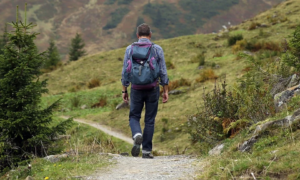Summertime in St. Louis is a great time to get outside and explore nature. Getting out of the house and finding a secluded area to camp or hike helps you bond with your family and get some peace and quiet. However, no matter where you go, you’ll also be met with insects that could be annoying and even dangerous to your health. You’re spending time in their home, and you’ll need to take steps to protect yourself.
Common Bugs and Insects
Mosquitoes
Mosquitoes are at the top of the list of bugs you’ll encounter in the great outdoors, and maybe the most annoying. Not only do they cause nasty bites and rashes, but they can also carry diseases like malaria and Zika. Infestation happens most often during the summer when there’s excess standing water from summer rains. They’re also more active during sunrise and sunset when we tend to be outside enjoying the weather during the coolest times of the day.
Flies and Midges
Many house flies won’t bite humans and generally infest your home, but when you’re camping or hiking you may encounter deer, horse, black, or midge flies — commonly referred to as “no-see-ums”. These species need human blood to reproduce and can cause skin irritation, and because they often travel in swarms, you’re likely to get several bites at once. If you tend to have allergic reactions to bug bites or sensitive skin, midges can be especially problematic.
Ticks
Ticks thrive in the moist shade, something you’ll find plenty of when you’re out camping and hiking. Tick bites are harmful to humans and can cause Lyme disease and spotted fever. They can’t crawl or jump high enough on people to become attached but they can easily transmit from pets to their owners. If you bring your dog into nature with you, take extra precautions because tick bites can cause serious skin issues on animals.
Hornets, Wasps, and Yellow Jackets
These flying stingers are their most harmful when provoked but otherwise would rather stay away from humans. Hornets, wasps, and bees have painful stings and the irritation doesn’t go away easily or quickly. For those with allergies, stings can be a big deal and even fatal if not addressed immediately; when you’re out in the middle of nature that can be a problem.

Avoiding Exposure
Here are some steps you can take to avoid exposure, the first step towards preventing harmful bites and stings.
- Insects love standing water, so set up your campsite away from lakes, ponds, or river banks.
- Keep tent doors zipped up at all times and invest in a bug net if you don’t already have one.
- When hiking, wear long-sleeve shirts and long pants and avoid wearing deodorant or perfume.
- Keep food securely packaged and don’t leave waste around your campsite.
- Put camping lanterns or light sources away from tent entrances — they can attract bugs.
- Be careful when you’re out around dusk or dawn when insects are most active.

Using (Bug) Protection
Even when taking precautionary measures, bugs can be persistent. You can buy clothing and gear pre-treated with Permethrin, an odorless pesticide-grade repellant that can provide protection for up to 6 weeks or about 6 washes. It’s effective against mosquitoes, ticks, midges, and other pests. One warning: Permethrin can be toxic to cats, so it’s wise to keep that in mind if you have a feline friend in the house.
For exposed areas of your skin, use topical lotions and sprays. They can be made of EPA-approved repellents like DEET or picaridin, or formulated from natural plant-based oils like citronella or neem. Make this decision based on your family’s needs, where you’ll be camping or hiking, and if anyone has allergies or sensitive skin that could limit your options.
Other bug protection measures include lights and lanterns that repel these critters, citronella candles, bug zappers, and repellent bracelets or topical patches. Bug protection for dogs is also a must-have when you take pets into nature with you; ensure they’re wearing flea and tick collars or have recently been treated by the veterinarian to protect against these pests.
While we can help protect your home and yard from pest infestations, it’s important to take precautions when you wander far from home. Hiking and camping can be a lot of fun for the whole family, but make sure to take proper steps to avoid exposure to harmful bugs when you’re out in the great outdoors.
